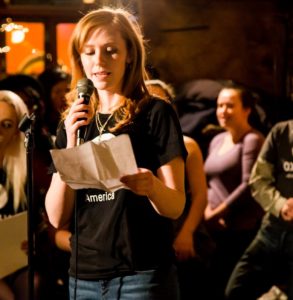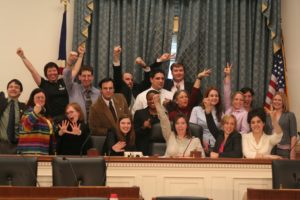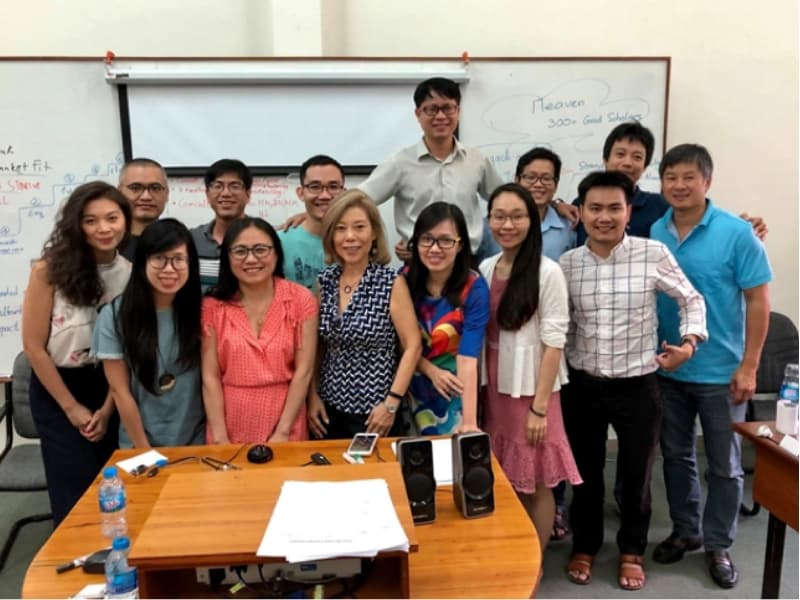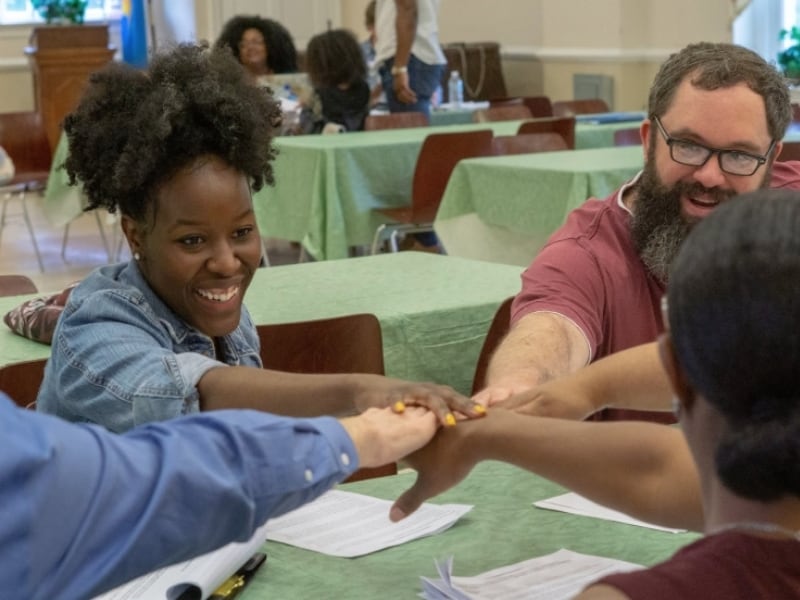Can we celebrate in times of tragedy?
Reflection written by Brian Rawson, LCN member
Marshall Ganz teaches that celebration is an integral part of the cycle of organizing: Plan an action.
Execute. Reflect. Celebrate. Repeat. Celebration is not only appropriate at time of victory, but on a
regular basis. It helps us unwind after a hard fought campaign, blow off steam after a tough meeting, to
bond as a community, and to strengthen our friendship.
But is there a time when celebration is simply inappropriate?
It was the final day of our intensive three day training on international solidarity, the eve of our Day of
Action on Capitol Hill, and time for our celebration. Adrenaline was up after prepping talking points and
role playing meetings. Tomorrow we would press Congress to reform US emergency aid in order to
reach more people faster after disasters with life saving money, food, supplies. But today our plan was
to celebrate. Each of our breakout groups was given space to develop something fun, quirky, or
motivational to share with the full group. They could capture our key points in a song, for example, or
give a motivational pep talk, or heck, even do an interpretive dance. Whatever they wanted to do.
But one of our members was struck by tragedy. An earthquake had shaken Nepal, and after awaiting
word all weekend she finally learned that she had indeed lost a family member, an aunt. Her breakout
group came to me asked “Can we skip this exercise? The only thing we can do is comfort her at this
time.”
I was in a jam. The exercise would seem garish and callous for celebrating while one member suffered.
But if we scrapped the celebration we would lose its power to bring us together. This was a training in
international solidarity – but how could we best achieve that now?
That’s when I recalled how Marshall Ganz defined celebration in the practice of organizing. It is a
moment in which members pause the work and come together to lift up the values that unite us. We
take a moment to observe, even with reverence, the values for which we are all willing to fight and
sacrifice.
I realized what to do. After checking in with our bereaved participant, I explained to all that this moment
was an opportunity to express solidarity with one another. Our participants had already used a
workshop session to film a video to mobilize donations for emergency aid efforts. But now was a time to
show solidarity in a different way.
Yes, I said, celebration is essential to our long term efforts. But no, celebration does not have to be
balloons and confetti. It can take many forms, from silly to somber to sacred. And so we gave each other
license to be our authentic selves and express what we needed to.
So one group did a joyful song and another gave a passionate pep talk. But one group invited us all to
take a moment of silence and mourn the loss of our friend’s aunt. In that moment of silence, all of our
heads bowed, it felt as though we had all lost a family member. International solidarity was a feeling in
our bodies. It was a tear on the cheek, a pain in our heart, and a steeling of our resolve.
The next day we assailed Capitol Hill with added urgency to demand action on legislation to improve
foreign aid. This was no longer just a high ideal, it was personal. Our participants carried that with them
as they went on to serve a year of local leadership organizing constituents in their hometowns.
Here are my tips for creating space for celebration even in hard times:
- Make it a habit. Celebrate often even if – no – especially if your community members are busy
and stressed. - Think beyond cake and confetti. Champagne is great when celebrating a victory or anniversary,
but also find other ways to honor your community’s values. Appreciate each other, honor your
heroes, hold vigil by candlelight for those fallen. Take outings that reflect your values, like
nature walks for green groups or a block party for a neighborhood group. - Frame the experience. Be sure to remind people who might scoff at taking a break from work
that celebration helps build bonds of relationship and strengthen our resolve to act together on
our highest values. - Create space for whole humans. We’ve all had to fake being happy at a party when we’re
actually stressed or bothered. Acknowledge to your guests that a range of emotions are ok as
we each process the times differently, and encourage people to be themselves whether their
mood is silly or somber. - Party with your values. Walk the talk from your food to plateware. Don’t bring Styrofoam cups
to a climate change group. - All in all, don’t miss the chance for celebration to remind and re-inspire your community about
the power of the ideals that brought you together in the first place.
Reflection written by Brian Rawson, LCN member




